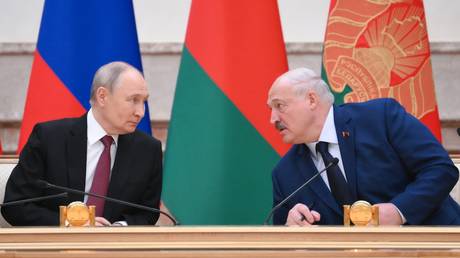New Delhi has embarked on a mission to develop its own artificial intelligence ecosystem in order to reduce reliance on Western tech giants
India has taken a key first step towards developing its own artificial intelligence chip from scratch, the newspaper Mint reported on Wednesday, citing officials. The initiative is aimed at lessening New Delhi’s dependence on Western tech giants, whose powerful processors have dominated the country’s AI landscape.
The country’s Ministry of Electronics and Information Technology (Meity) has partnered with state-owned IT and advanced computing centers, including the Centre for Development of Advanced Computing (C-DAC), to design the chip from the ground up. The chip will leverage C-DAC’s expertise in building processors based on open-source ‘Risc-V’ core architecture that will have a set of openly accessible standards that can be used by others – akin to the Android architecture used by many smartphone makers.
The US has long been at the forefront of AI technology. Chips made by the company Nvidia power the AI behind popular tools such as ChatGPT. However, India is now looking to change this by developing its own AI chip, with work on the framework already underway, according to government officials quoted by the publication. They added that New Delhi has set a tentative timeline of 2027 for the production of these chips in India. Experts from Big Tech firms in the US and executives from Taiwan Semiconductor Manufacturing Committee (TSMC) are also reportedly consulting with Meity to help develop the chip.
Read more
India to develop DeepSeek rival this year – IT minister
India’s quest to develop its own proprietary AI chip reflects a growing trend globally towards indigenous AI technologies. This is particularly significant given the US’s dominance of the semiconductor segment, where it has raked in 70% of global semiconductor revenues, according to the research firm Gartner. The US has recently introduced new regulations limiting the export of AI chips, tightening rules for companies such as Nvidia, in an effort to curb China’s technological advancements.
In response to these regulations, both India and China have recently made announcements regarding AI. The Indian government in January approved 18 proposals aimed at accelerating AI solutions in key sectors such as agriculture and climate change. This initiative is a key component of the $1.2 billion IndiaAI mission that seeks to develop both large and small language models.
China, meanwhile, recently unveiled DeepSeek, a new AI assistant that caused ripples in the industry when it was released and elicited favorable comparisons to OpenAI’s ChatGPT. It has already surpassed ChatGPT as the most popular AI assistant on Apple’s App Store.







+ There are no comments
Add yours